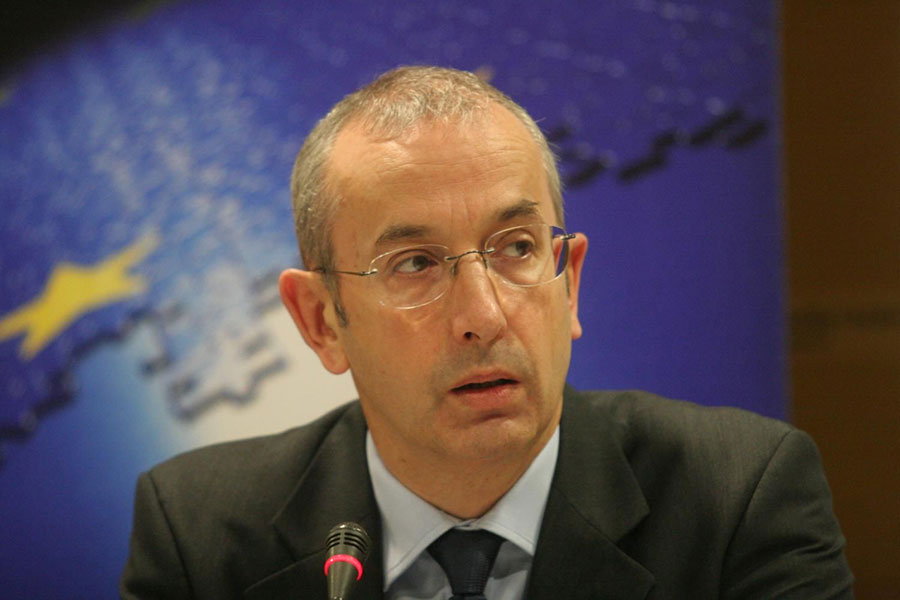Generally speaking, the Report on Serbia is positive, although it notes information leakage from investigations into the media, non-transparency of media financing, whereas the judiciary lacks concrete investigation results, said Head of the EU Delegation to Serbia Michael Davenport for N1 TV.
“We can say that the overall assessment remains positive and 2015 Report is significant because it contains even more detailed recommendations,” said Head of the EU Delegation in Belgrade.
“We have made more recommendations regarding the next year, for instance as regards the rule of law, specific actions and criteria for Serbia to fulfil in 2016,” explains Ambassador Davenport.
“As Commissioner Hahn said it, there was a specific conclusion regarding the opening of first negotiating chapters,” he said.
Davenport said that European Commission commended the pace of economic and structural reforms in Serbia which was reaffirmed not only in this Report, but also during the past year, and reminded that EU Finance Ministers named it a good course, adding that IMF was pleased with the pace as well.
Davenport, however, stresses that great challenges still lie ahead, especially when it comes to public enterprises and restructuring. He added that fulfilling certain political criteria had also influenced business environment.
Ambassador said that there was a concern about media freedoms in Serbia.
“Certain developments in the area of media cause concern. On one hand, set of media laws was adopted, partially implemented over the course of the past 12 months; privatisation of media was carried out, and the fact that the State had to withdraw from financing media was generally accepted… However, we are witnessing information leakage from investigations into media, non-transparency of media financing – these are all major tasks for the coming year,” Davenport said.
When it comes to Report’s criticism about judiciary and rule of law, Davenport said that a certain progress was made indeed, but concrete investigation results lacked. Everyone is eager to see greater progress and concrete results, said EU Ambassador. “It is completely clear that everybody have their share of responsibility: judges are largely responsible for the efficiency of proceedings, whereas certain responsibilities lied in the hands of prosecutors as well.”
“We expect to see the opening of first negotiating chapters, as stated by Commissioner Hahn and McAllister. We are talking about the Chapter 35, dealing with Pristina-Belgrade dialogue, as well as about Chapter 32. I would say that there is a consensus among Member States regarding the opening of chapters, and the decision remains lies entirely in their hands,” said Davenport recalling the previous lack of such a consensus.
“A few important agreements were reached in late August regarding the implementation of Brussels Agreement and it is clear that the progress has been made in the implementation, thus paving the way to opening of Chapter 35,” Davenport said.
Asked to comment on why the Constitutional Court of Kosovo temporarily cancelled the Agreement on the establishemnt of Association of Serb Municipalities in Kosovo, Davenport said that the EU was aware of the importance of such an Association for citizens of Kosovo, and that it would insist on the implementation of the said Agreement, as well as other agreements.
When asked why the EU insisted that the Chapter 35 should be the first to open, Davenport said that it had to do with EU Member States’ stance. “They have come to insist on the opening of Chapter 35. In cooperation with the Government, Action Plans for the Chapter 23 have been developed, dealing with rule of law, as well as the Chapter 24. I expect to see the opening of these two chapters over the course of next year, too,” Davenport said.
In his interview with N1 TV, Head of the EU Delegation to Serbia also said there were considerable improvements regarding the regional policy, and pointed to the great progress Serbia had made in its bilateral relations, with Albania and BiH in particular.




